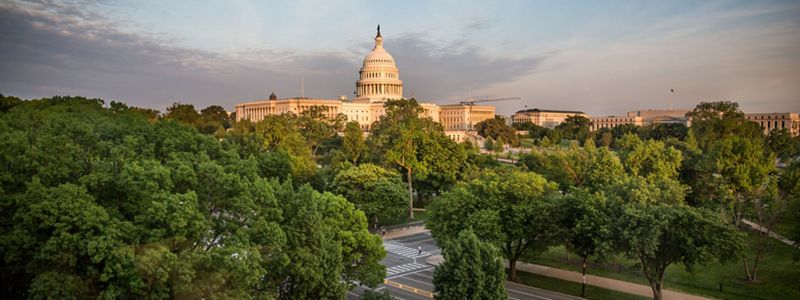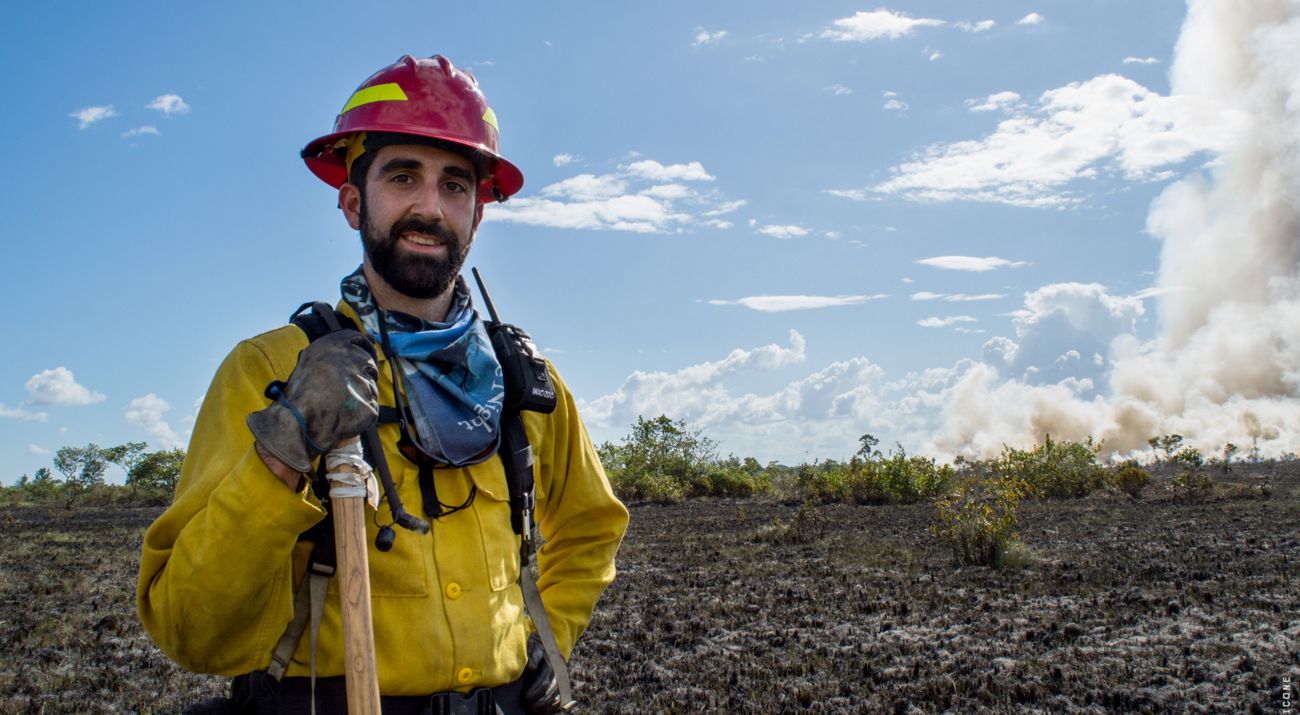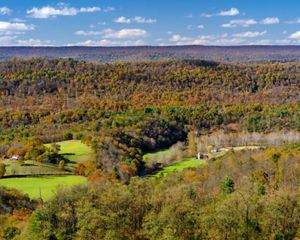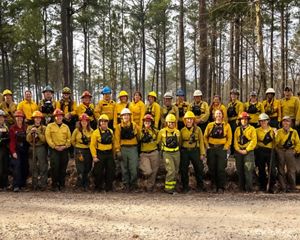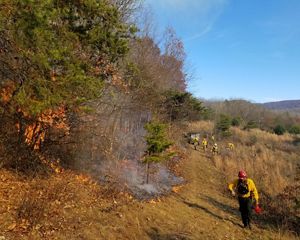International Fire Training
TNC fire practitioner Chase McLean shares his experiences attending a wildfire suppression learning exchange in Belize.
TNC fire management has had a long and positive relationship with Belize and the partners that helped to put on this training.
The learning exchange was held on the Deep River Forest Reserve in the Toledo district of Belize, where a close partner of the Sothern Belize Fire Working Group operates a sustainable forestry operation. The Thomas Gomez and Sons’ Saw Mill has been logging this area for generations and uses sustainable forestry methods including prescribed fire and managed wildfires.
This fire training was held in Belize to rekindle a once strong and active relationship with organizations and partners, some of which TNC helped to form through the Global Fire Initiative in the early 2000’s. Belizean partners for this training included the Toledo Institute for Development and Environment (TIDE) and the Southern Belize Fire Working Group (both of which were formed with help from TNC). They continue to implement principles, knowledge, and techniques of fire management learned from TNC.
This pine savanna ecosystem is a fire dependent system similar to the longleaf pine ecosystem found in the southeastern US. The availability of this large amount of space—over 60,000 acres of land—allowed organizers to plan training scenarios where participants could respond to active wildfires and suppress them without risk to people or property. The ecosystem also provided a diversity of fuel types, fuel configurations and fire behavior, which greatly enhanced the training.
Quote: Chase McLean
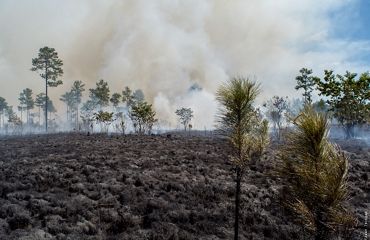
The ability to work at a scale that is just not possible on TNC land in the US was a huge asset.
The training was focused on wildfire suppression and not prescribed fire, as the TNC fire exchange trainings are in the US.
This training was “designed to build fire suppression capabilities, evaluate individuals in the tasks and behaviors necessary to suppress a wildfire in initial attack and the conversion-to-wildfire transition of controlled burns.”
Getting training on wildfires is something that is difficult for many TNC fire practitioners. Wildfire incidents in the US are managed by the federal government and we do not typically send crews to fight wildfires.
This means that when TNC folks go out west to fight fire, we are not the first in line for many of the training opportunities offered on these incidents. Many of us have plenty of opportunities to conduct prescribed fires and have very few, if any, wildfires on our preserves. This is especially true for the mid-Atlantic.
During this training I was able to reach a professional goal of completing my FFT1 Firefighter Type 1 (aka Squad Boss) qualification task book and, in addition, initiated my Single Resource Boss task book. These new qualifications will allow me to take on more of a leadership role on our prescribed fires and bring some of the skills and knowledge learned from this training to our fire management program in Maryland.
Quote: Chase McLean
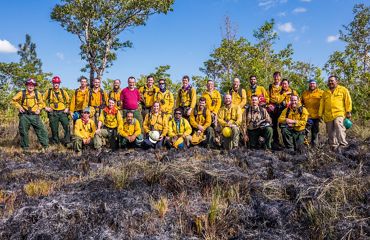
I can use the skills, knowledge and positive relationships I established with other TNC fire practitioners to help benefit fire management in Maryland.
We Can’t Save Nature Without You
Sign up to receive monthly conservation news and updates from Maryland/DC. Get a preview of Maryland/DC's Nature News email.
